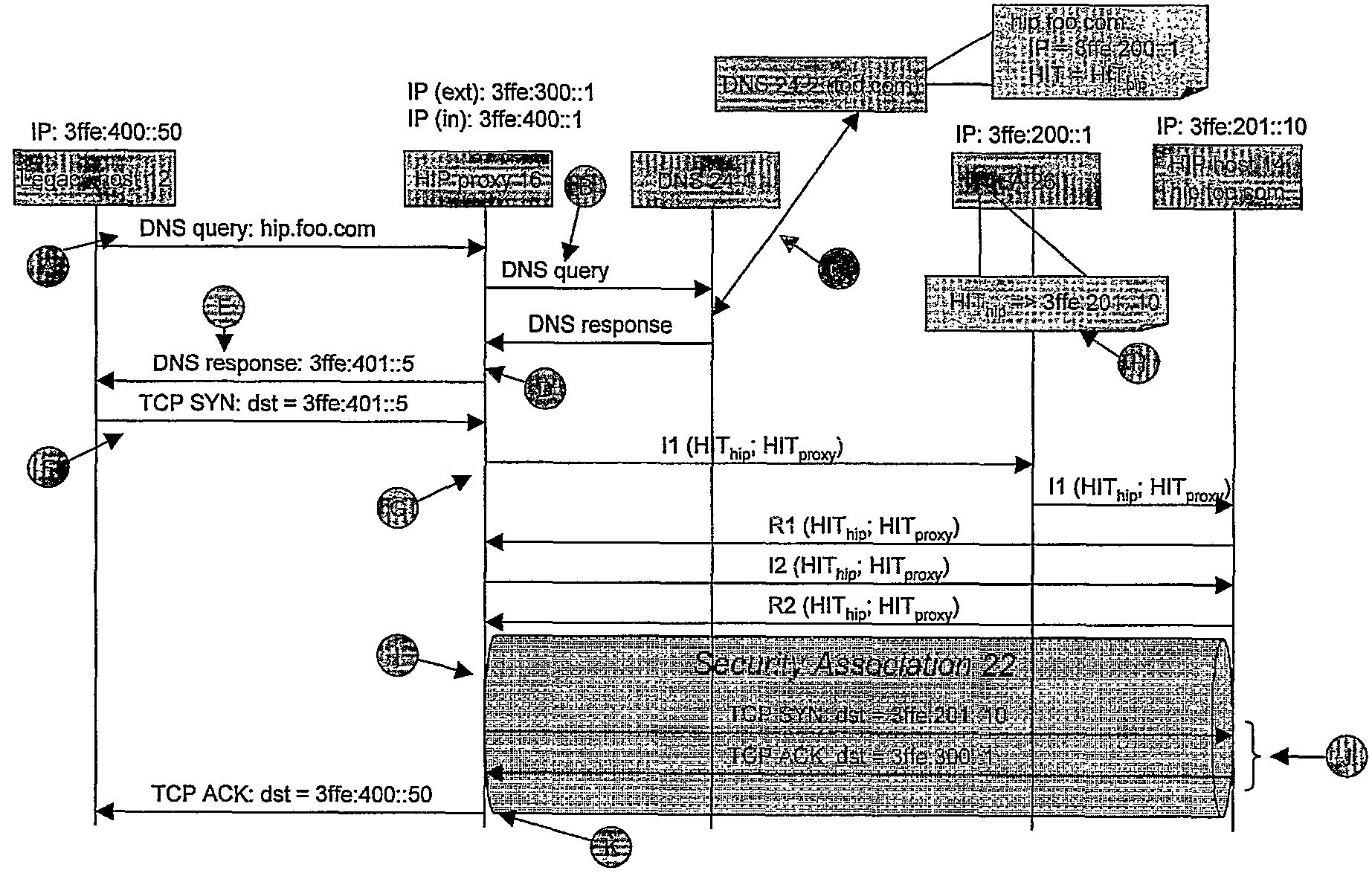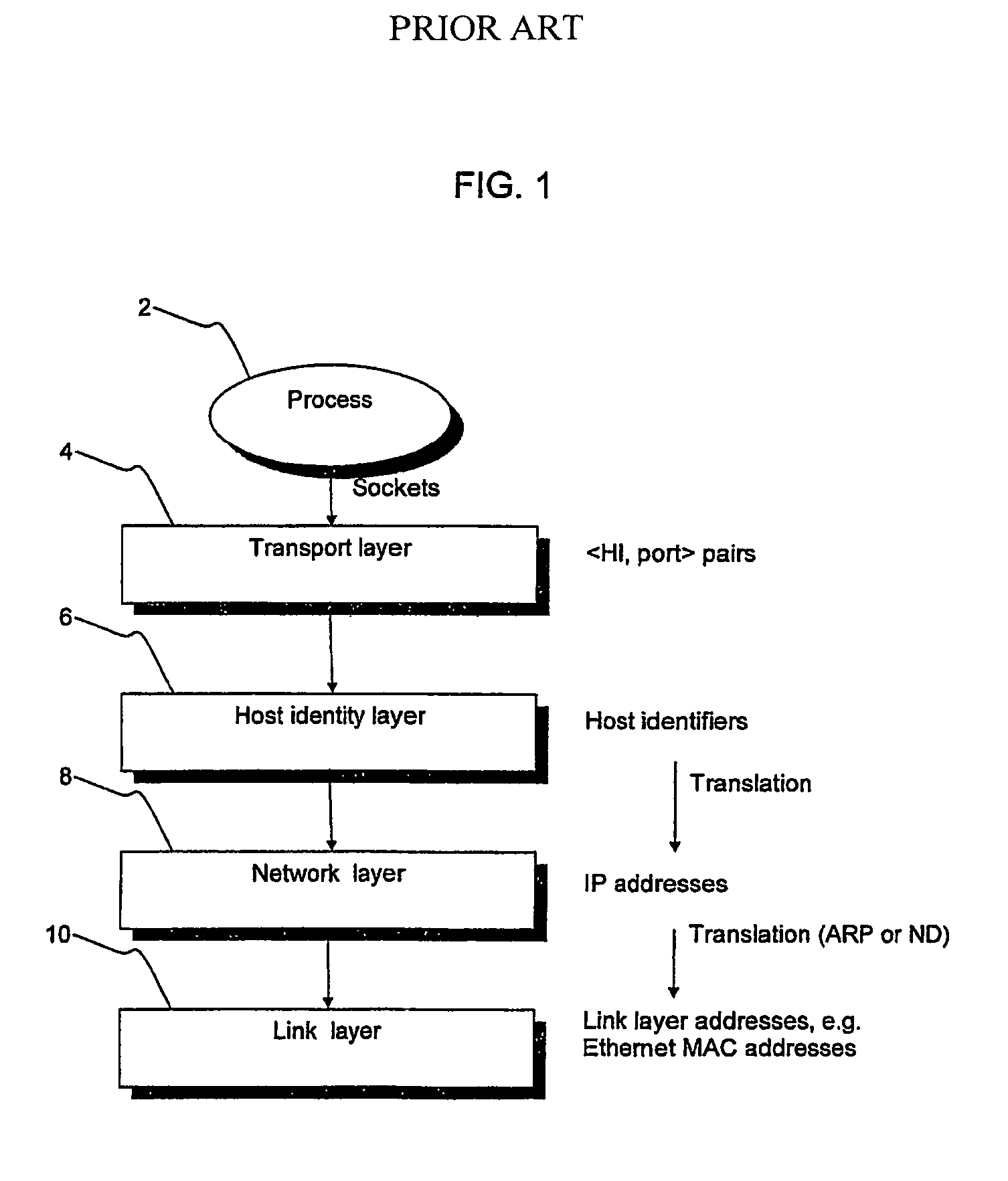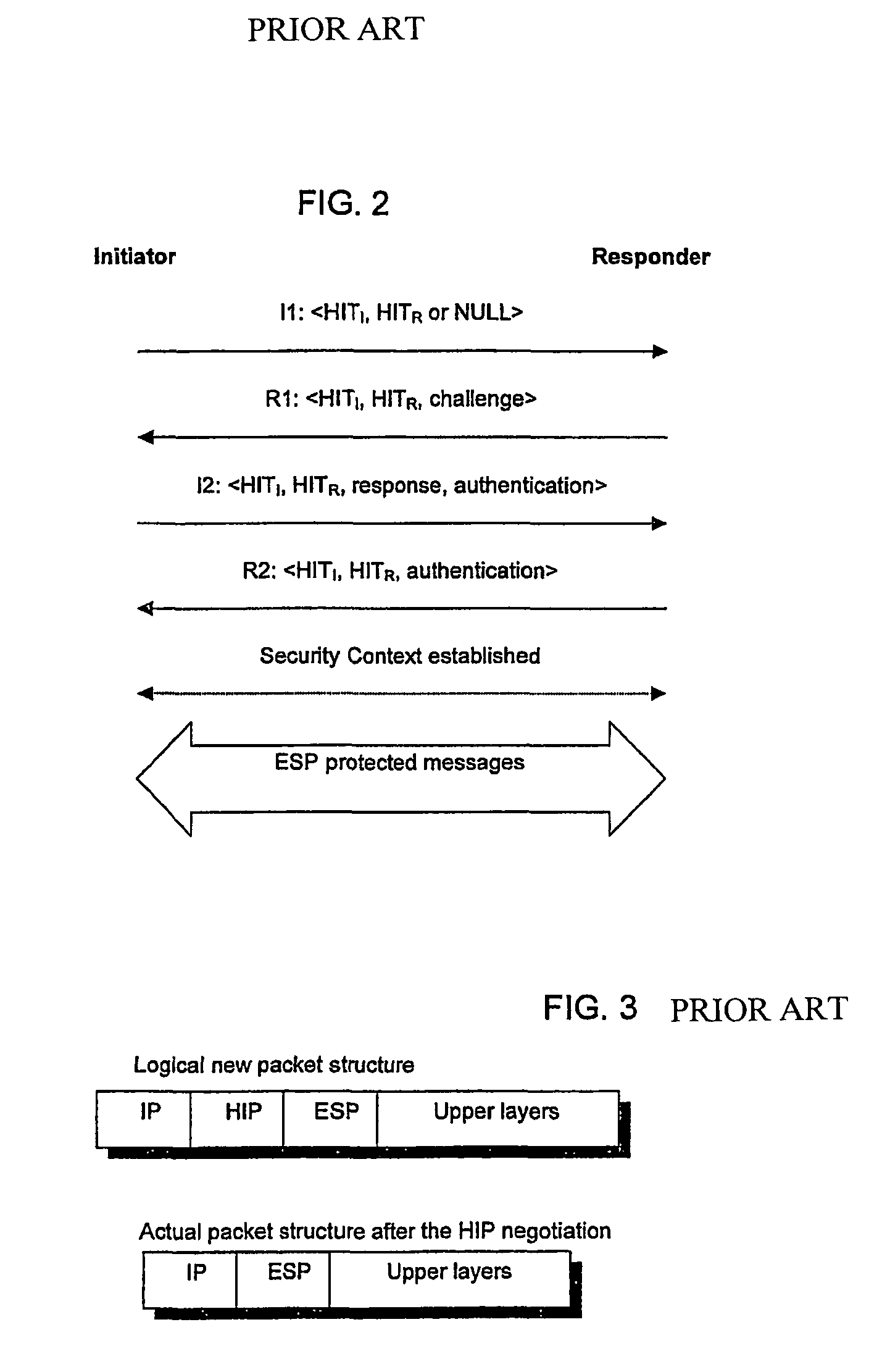Addressing method and method and apparatus for establishing host identity protocol (HIP) connections between legacy and HIP nodes
a technology of host identity protocol and socket node, which is applied in the direction of data switching network, wireless communication, instruments, etc., can solve the problems of increasing complexity, affecting the security of the network,
- Summary
- Abstract
- Description
- Claims
- Application Information
AI Technical Summary
Benefits of technology
Problems solved by technology
Method used
Image
Examples
Embodiment Construction
[0076]An embodiment of the present invention will now be described within the general framework of the system described above with reference to FIG. 5. An embodiment of the present invention provides a method of at least partially securing communications between the legacy host 12, which is not HIP enabled, and the HIP host 14, which is HIP enabled via the HP proxy 16 (also referred to as “proxy” (also referred to as “HIP node”) and “HIP proxy node”). Operation of an embodiment of the present invention will now be described with reference to the message exchange diagram of FIG. 6. The steps shown in FIG. 6 are also illustrated in more detail in FIGS. 8 to 12, while FIG. 7 gives a more detailed overview of the packet structures used in TCP, UDP (User Datagram Protocol), ESP and HIP.
[0077]Consider the situation where the legacy host 12 wishes to initiate communication between itself and the HIP host 14. The legacy host 12 knows the domain name of the HIP host 14 to be “hip.foo.com”, a...
PUM
 Login to View More
Login to View More Abstract
Description
Claims
Application Information
 Login to View More
Login to View More - R&D
- Intellectual Property
- Life Sciences
- Materials
- Tech Scout
- Unparalleled Data Quality
- Higher Quality Content
- 60% Fewer Hallucinations
Browse by: Latest US Patents, China's latest patents, Technical Efficacy Thesaurus, Application Domain, Technology Topic, Popular Technical Reports.
© 2025 PatSnap. All rights reserved.Legal|Privacy policy|Modern Slavery Act Transparency Statement|Sitemap|About US| Contact US: help@patsnap.com



